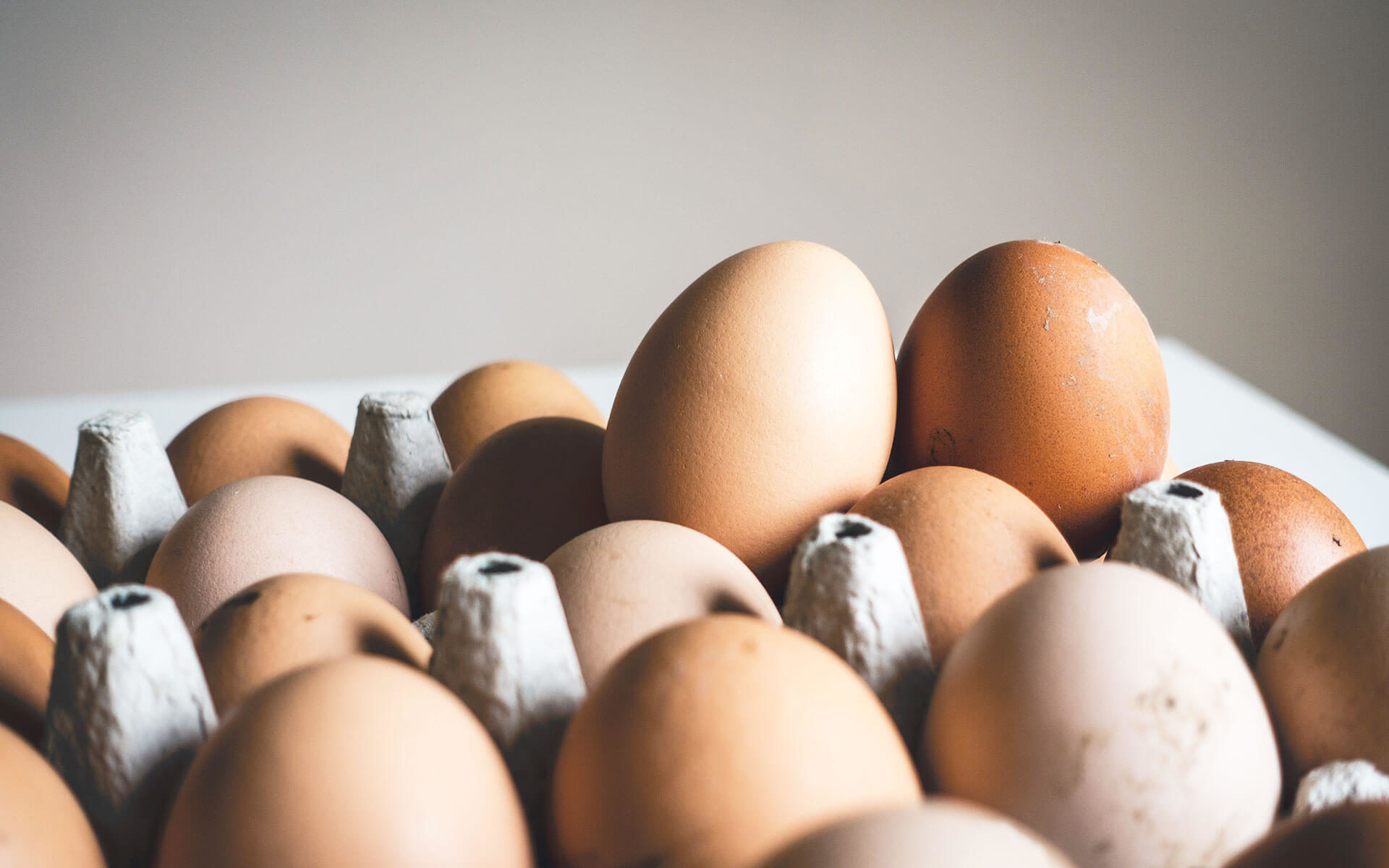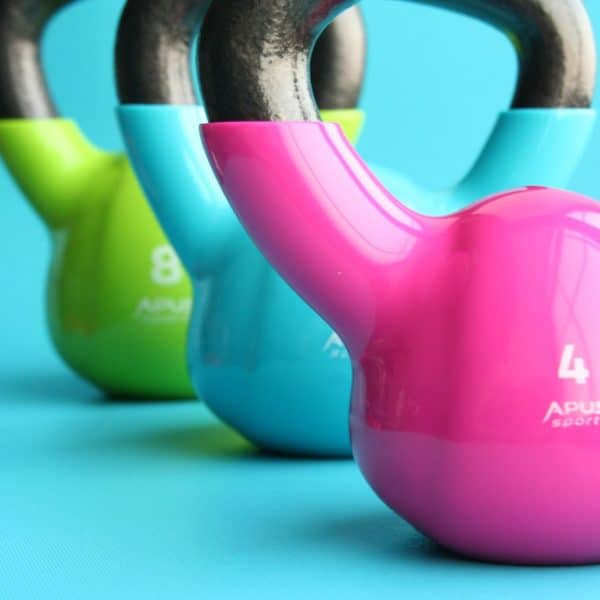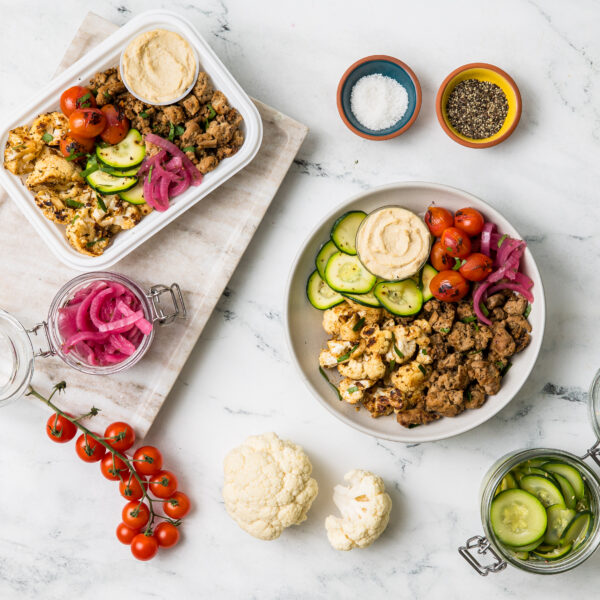As if the world of nutrition wasn’t confusing enough, we’ve been hearing lots of mixed rumblings lately about cholesterol. One of our dietitians, Sam, figured she’d do a little myth-busting for you and put some of these questions to rest, once and for all.
What is Cholesterol?
Simply put, cholesterol is a waxy substance mostly produced by your liver. Contrary to what its bad reputation might have you believe, it’s actually vital for health and well-being. It can be found in your bloodstream and your cells, where it helps produce cell membranes, hormones, vitamin D, and even bile acids (which help you digest fat). It’s also vital for neurological health, helping with memory and cognition.
There are two main types of cholesterol, high-density lipoprotein (HDL) and low-density lipoprotein (LDL). HDL is termed “good”, since it helps keep cholesterol away from your arteries. LDL is traditionally termed “bad” cholesterol, since it may have a tendency to build up in your arteries.
While cholesterol is found in food (eggs & other animal products), your body actually makes about 75% of your cholesterol for you. In general, dietary cholesterol doesn’t impact blood cholesterol. Yep, you heard that right!
Dietary Cholesterol
For one, your body can’t actually absorb most of the cholesterol from food. Your body also tightly regulates cholesterol by controlling internal production. In other words, if you eat less dietary cholesterol, your body will simply produce more and vice versa. This helps explain why, for about 75% of the population, dietary cholesterol won’t increase blood cholesterol. The remaining 25% are considered hyper-responders. For these hyper-responders, dietary cholesterol does tend to increase HDL and LDL but doesn’t affect their ratio or risk of heart disease.
Simply looking at your total cholesterol isn’t the best marker of health anyway. There are a few ratios that do a better job, including the HDL/cholesterol and triglyceride/HDL ratios. Low HDL is actually a much greater risk factor for heart disease and heart attack than high LDL.
If you do have a blood test that shows elevated cholesterol numbers, it’s at least partially due to increased inflammation in your body. Think of cholesterol like a firefighter; it’s there to help put the fire out, or in this case, calm your body and initiate repair. Work to manage your inflammation first, and you’ll find your cholesterol numbers improve.
The Diet-Heart Myth
For a very long time, cholesterol and the foods that contain it have been given a pretty bad rep. Superfoods like eggs have been relegated to ‘do not consume’ status because of their cholesterol content. This makes us so sad. As far as eggs are concerned, not only do most of the nutrients reside in the yolk (gems like choline, a B vitamin crucial to healthy cells), but whole eggs just taste better!
If you’re trying to lower your heart disease risk, you’re better off avoiding things like sugar, processed vegetable oils, and refined carbohydrates, not limiting your eggs or your healthy fats (see our list below!). Research shows that the issue isn’t fat as a whole, but rather the type of fat; vegetable oils like canola, soy, and corn, and trans fats are much more likely to cause problems compared to more nourishing, stable fats like grass-fed ghee or butter.
As you may remember from our inflammation 101 blog, inflammation is actually the driver for most chronic diseases, not cholesterol levels or saturated fat consumption. And remember that cholesterol is elevated when inflammation is present since it acts as the “firefighter” trying to put out the blaze.
As a quick refresher, inflammation is caused by things like sugars, refined grains, unhealthy oils, a sedentary lifestyle, smoking, or a high-stress lifestyle. Focusing on improving these factors is much more likely to decrease your heart disease risk than avoiding everything with any fat or cholesterol.
How to Lower Your Cholesterol Levels
Focus on quality, not quantity. Rather than counting grams of single nutrients, aim to eat a diet that’s rich in vegetables, healthy fats and high-quality proteins. If you tolerate gluten-free grains or legumes, add those in too, focusing on portion size.
Cholesterol “Busting” Foods
While no single food can immediately undo high levels of LDL or low levels of HDL cholesterol, a healthy, balanced diet will eventually lead to better levels over time. When you’re including fat on your plate, make sure you’re ditching processed vegetable oils and instead opting for things like:
- avocados
- fatty fish rich in omega-3s
- coconuts
- olives
- extra virgin olive oil
- nuts & seeds
- coconut oil
- grass-fed ghee or butter
- fat from pasture-raised meat cuts
Lifestyle Changes That Impact Cholesterol Levels
If you want to improve your cholesterol levels and your health as a whole, there’s plenty more you can do. As we mentioned above, work on avoiding refined grains and sugars, especially high fructose corn syrup. Exercise or move your body in a way that you enjoy. Avoid smoking and excessive alcohol consumption and work on limiting your life stressors.
It may seem like a lot to change, but take it one step at a time! Start with adding in some of the nourishing things, like more veggies (fiber!) or nourishing fats. Then, slowly, work on the lifestyle factors or on removing some of the potentially inflammatory foods. Little by little, your actions will add up.
If you want quicker results, consider visiting a functional medicine doctor or dietitian for guidance, or do an elimination diet like Whole30 to work on calming inflammation. You might find that a few diet tweaks can make a world of difference to your blood work!
Want to skip the shopping, cooking and cleaning and still eat to improve your health? Try our low carb, Whole30, or paleo meals today! They’re all naturally anti-inflammatory and filled with all the good stuff.
As always, keep in mind that our blog is not intended to diagnose or treat medical issues and is not a substitute for professional medical advice.





Leave a Reply
No Comments